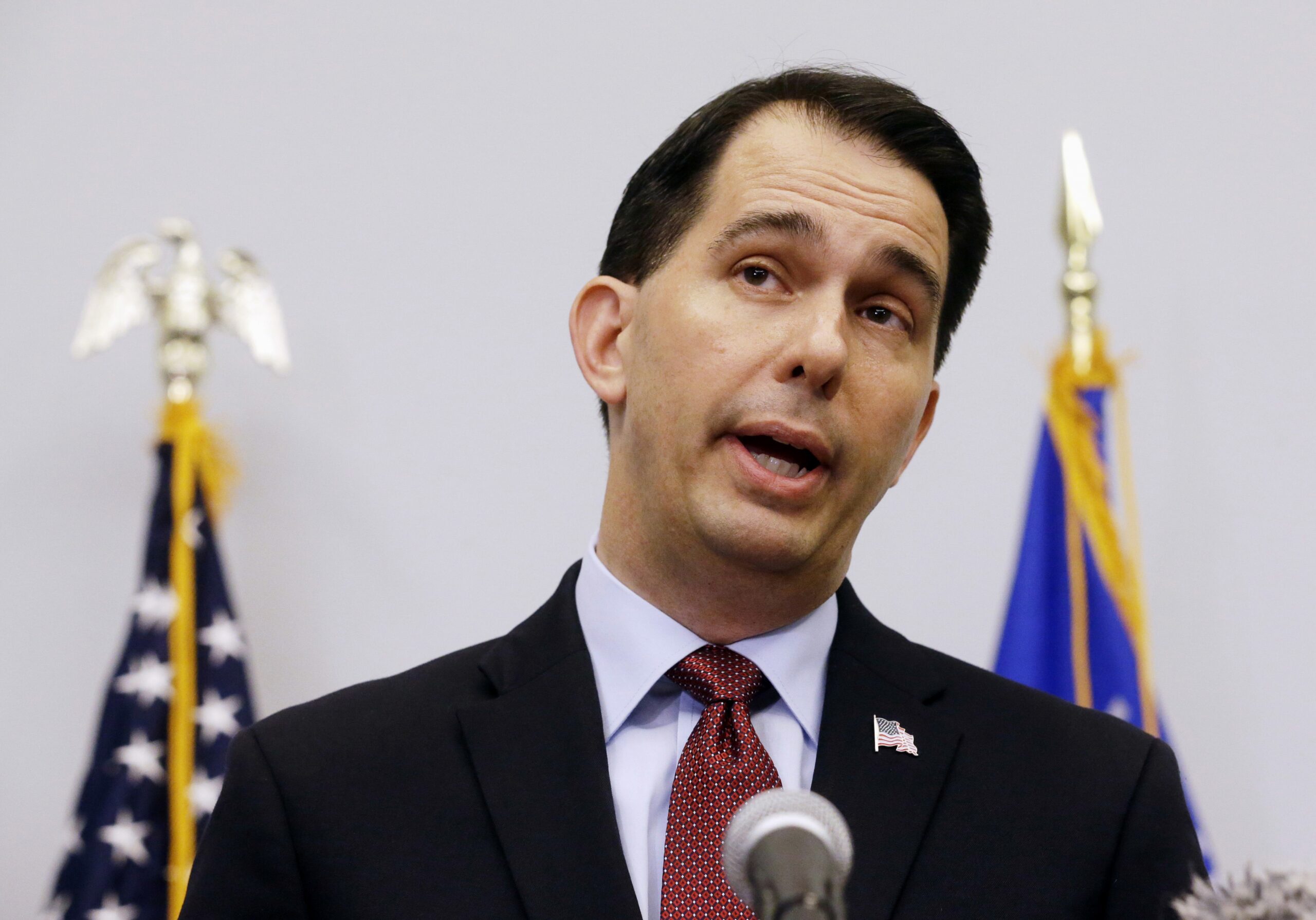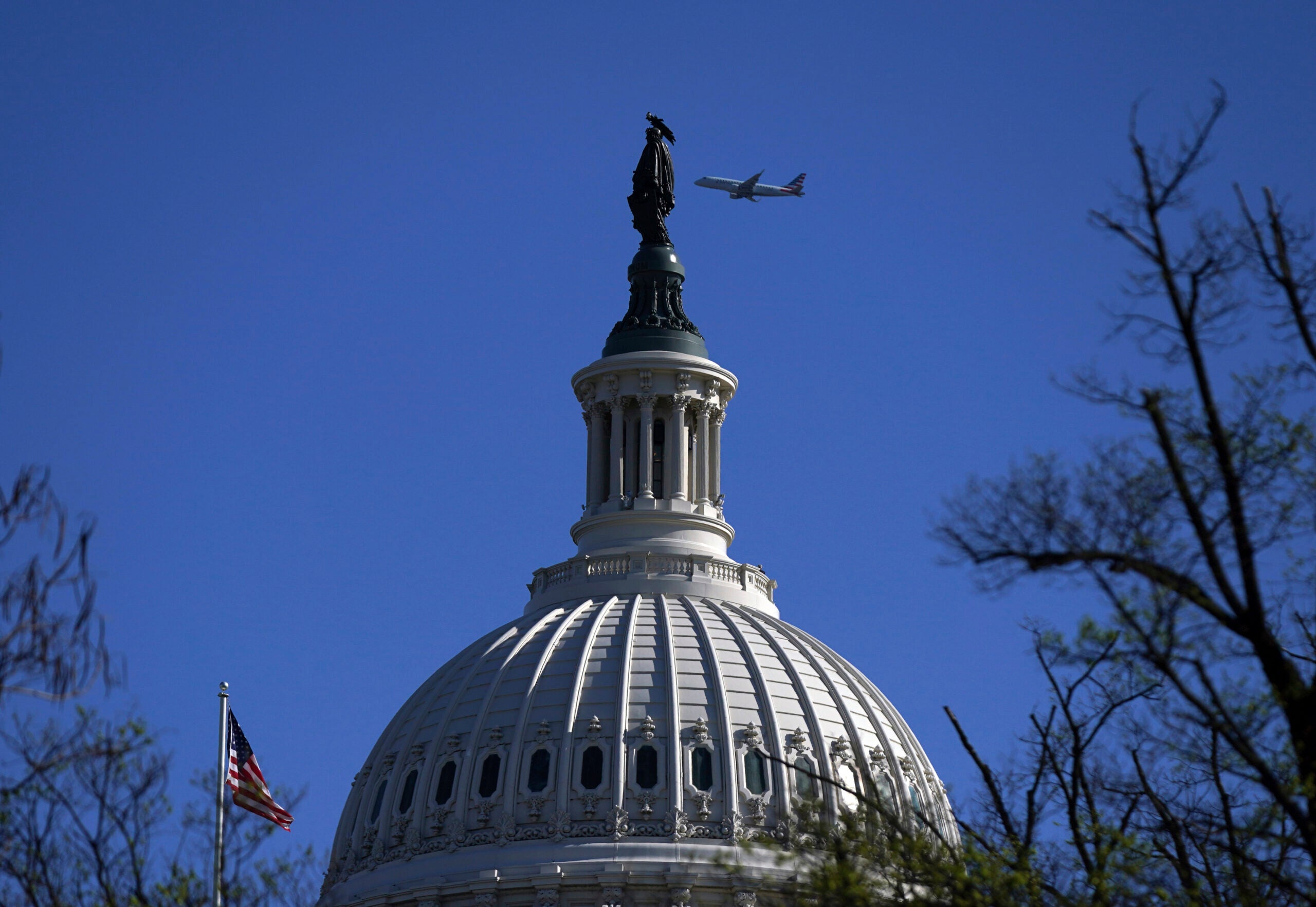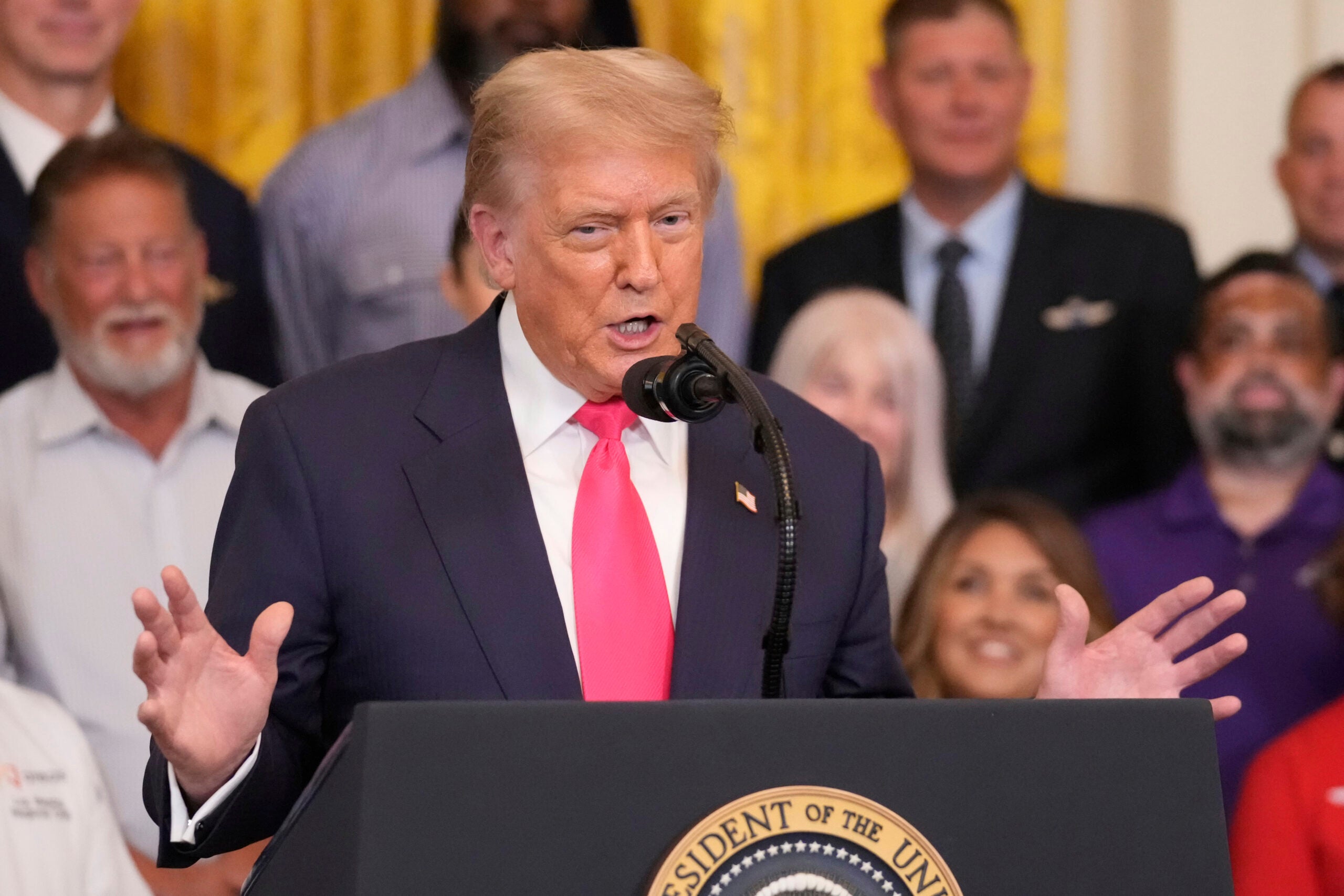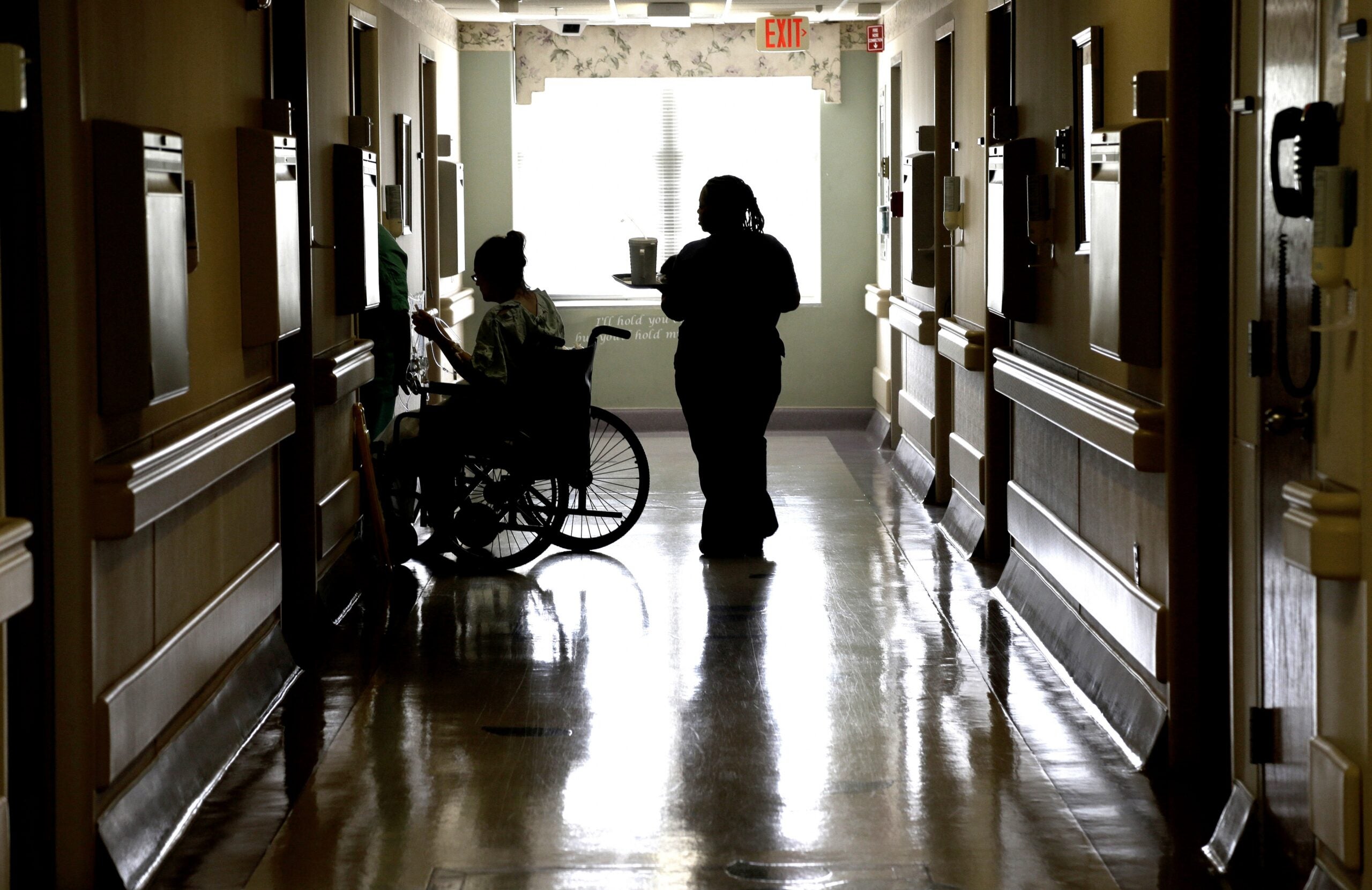Gov. Scott Walker says he’s talking with other Republican governors about how to improve the federal health care law introduced in Congress last week.
Walker said Tuesday the call with governors would happen later in the day. He did not offer specifics during or after a speech to the Rotary Club of Milwaukee about what changes he would like to see. The bill in Congress is being championed by fellow Wisconsin Republican House Speaker Paul Ryan.
Walker says the current law — the Affordable Care Act, also known as Obamacare — must be replaced. But the potential replacement, the American Health Care Act, is controversial.
News with a little more humanity
WPR’s “Wisconsin Today” newsletter keeps you connected to the state you love without feeling overwhelmed. No paywall. No agenda. No corporate filter.
“I still think there’s more room for progress,” Walker said. “Part of what we’re going to be looking at is, what are the long-term impacts on Medicaid?”
Walker said a new analysis predicting 24 million people nationwide would eventually lose health insurance doesn’t apply much to Wisconsin because the state didn’t expand Medicaid.
But critics say a proposed per capita cap on federal Medicaid grants would eventually force Wisconsin to increase health care spending, or kick people off Badger Care. Walker said he’s still analyzing the proposed cap.
Walker is chairman of the Republican Governors Association. He has been calling for changes to the national law to be modeled after Wisconsin’s health care system. Walker has stopped short of endorsing the bill in its current form, saying he expects unspecified changes to be made.
Madison mayor Paul Soglin criticized the proposed plan health plan for giving tax breaks to wealthy while potentially hurting lower income individuals.
“It’s incumbent upon us not just for the well-being of the individual but for all of society to recognize we share the responsibility and we share the cost,” Soglin said.
The proposed plan gets rid of the mandate to have insurance, and the Congressional Budget Office report estimates 14 million Americans would drop insurance next year if the replacement plan passes. Millions more would not have insurance because of Medicaid cuts.
“People can say ‘It’s my business and my business alone to decide whether to get health insurance,’” Soglin said. “Well it’s not, because for every one of these uninsured cases, the rest of us end up paying.”
Wisconsin Public Radio, @ Copyright 2025, Board of Regents of the University of Wisconsin System and Wisconsin Educational Communications Board. The Associated Press contributed to this report. All rights reserved. This material may not be published, broadcast, rewritten or redistributed.







